AI Overviews and How SEO Should Respond
Google rolled out a big new feature this week, called AI Overviews. A lot of Google’s AI efforts have their biggest impact in consumer spaces, but we’re already seeing AI Overviews affecting search results in B2B spaces as well.
Here’s exactly what you need to do about it …
What are AI Overviews?
AI Overviews are large, expandable panels appearing at the top of some SERPs to give users quick answers to their questions.
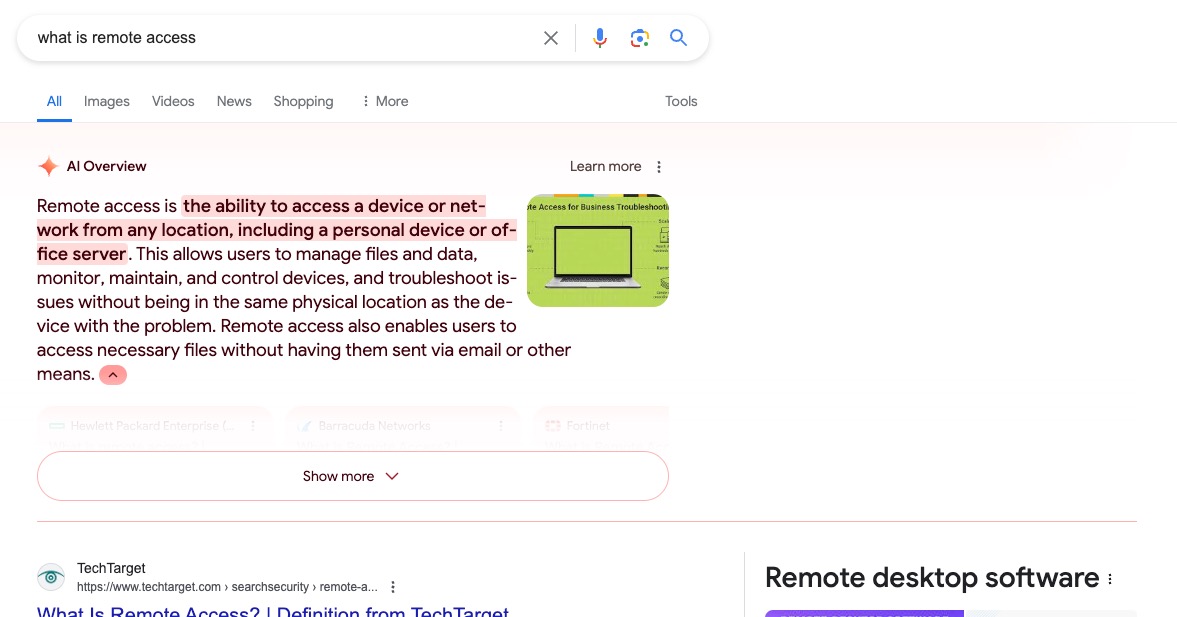
They appear collapsed by default, although the panel still takes up about half of a desktop screen.
Is this the end of SEO?!
Hardly. It’s way too early to make claims about the long-term impact, of course—only time will tell.
But while it’s easy to see the challenges it poses to SEOs and content marketers … there are probably some great opportunities hidden in here as well.
Because Google’s AI (Gemini) cites sources.
In many cases, the branded sources appear in mini-snippets visible above the “Show more” button:
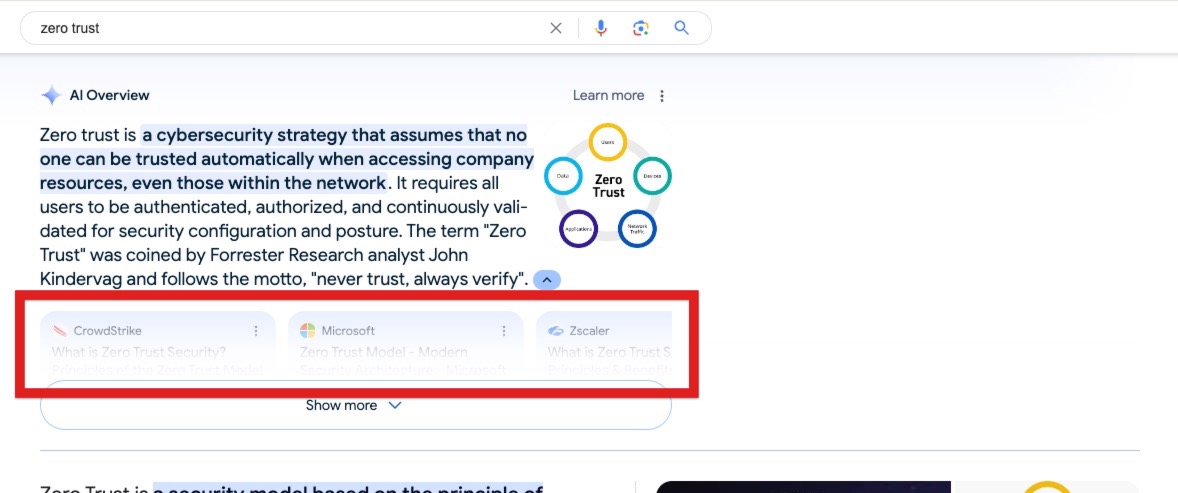
Once the Overview panel is expanded, each additional paragraph of info ends with an arrow that will open the source(s) for that particular information as well:
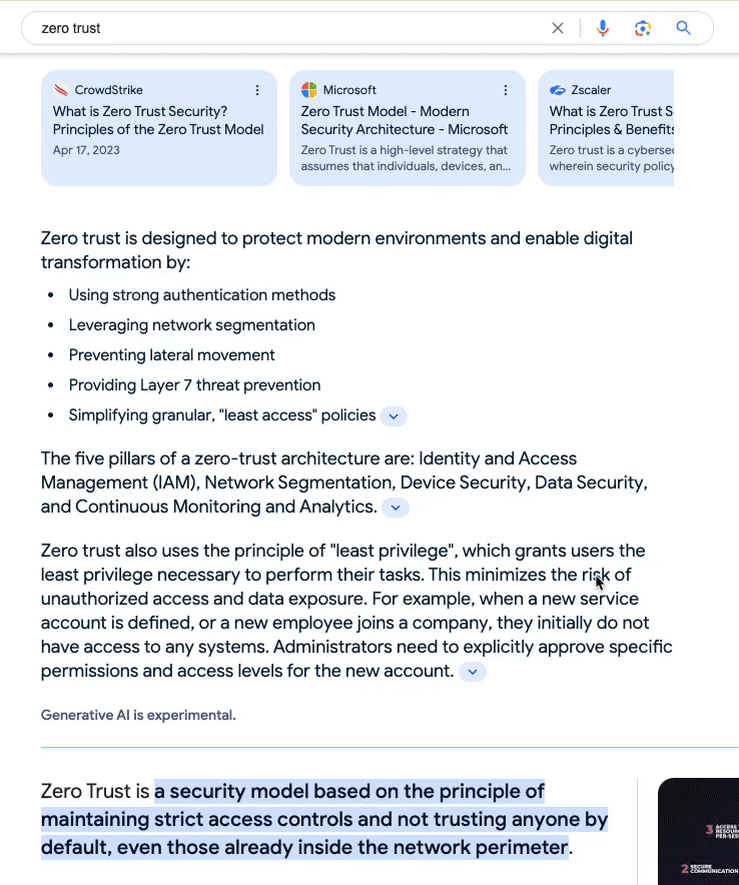
It’s not likely that Gemini will drop the source info anytime soon. Google is already losing legal battles about plagiarism and copyright infringement because of these Overviews.
That means the AI Overview—like the early days of featured snippets, before the 2020 deduplication update—may be an opportunity for marketers to:
- Place the brand on Page 1 multiple times.
- Elevate the brand to the top of the SERP, even if rankings are stuck on the middle/bottom of the page.
How to SEO for AI Overviews
How should marketers respond to AI Overviews?
1. Review your core keywords.
Keywords that represent the need for a quick answer are going to be impacted first. Google’s guidelines state:
AI Overviews appear in Google Search results when our systems determine that generative responses can be especially helpful — for example, when you want to quickly understand information from a range of sources, including information from across the web and Google’s Knowledge Graph.
In some cases, that will be head terms, but not always. At time of writing, Gemini produces an AI Overview for ‘what is remote access’ (above) but not ‘remote access.’
Pull a list of those most important keywords and:
- Conduct depersonalized searches for head terms first.
- If no AI Overview appears, try adding ‘what is …’ or ‘benefits of …’ to see if you can find an Overview.
If you don’t get any AI Overviews, note which keywords do generate featured snippets. Google already thinks that those can be answered by scraping content, so they might be next in line for Overviews.
2. Analyze the AI Overviews.
Where you find AI Overviews, make some notes:
- What’s the main question being answered? (Probably, “What is ___?” but never assume.)
- What other subtopics are being highlighted below the “Show more” button?
- How are those answers formatted? Paragraphs or bullet point lists?
- Are there images in the Overview?
These are all key content insights.
3. Audit your content library.
Do you have content that is answering those questions?
Note: The question is not, “Do you have content targeting those keywords?”
For example, the AI Overview for ‘pto policy’ is answering questions like:
- What is a PTO policy?
- What are common features of a PTO policy?
- What are the benefits of a PTO policy?
- Etc.
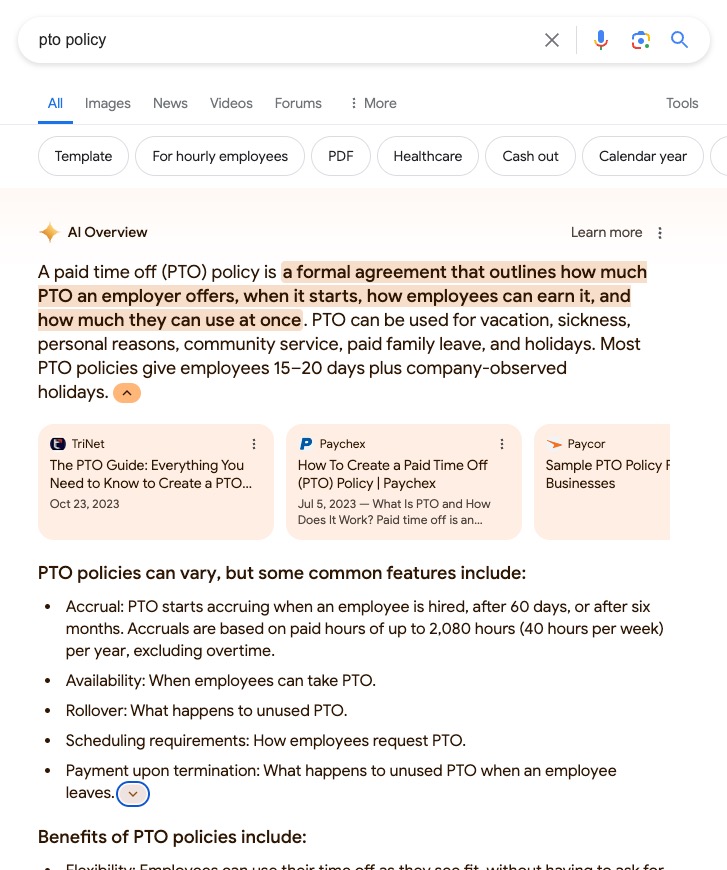
A product or solution feature page about how your HR software helps with PTO scheduling is not what users are looking for and you will not fool Google. You need a, “Complete Guide to PTO” article to show up here. Do you have that content?
If so, how is it performing? Is it on page one? Is it close?
Make notes on your keyword list about which opportunities have existing content that’s just not cutting it and which opportunities need new content creation.
4. Fix your content.
Identify the best opportunities from your list and get to work. We prioritize SEO content efforts at the intersection of SEO volume + business value—which opportunities have good non-branded traffic behind them and are relevant/valuable to the business?
If you have existing content that is performing well already, just not quite in that Overview, that might be your low-hanging fruit. Gemini seems to be choosing from content already on page one.
Please note that answering the questions in the AI Overview is not the only step to properly optimizing content—especially if your content isn’t already on the first page of organic results. Can’t put lipstick on a pig, as the saying goes.
- Find the URLs that are winning traffic for the conversation in question.
- Figure out what they’re doing that’s engaging users.
- Audit relevant SERPs to gain insights on what Google understands about that conversation.
“Optimizing content” in the era of AI-driven algorithms means understanding your audience and the language on SERPs, and then creating content that’s even better.
And include the questions being answered in Gemini’s AI Overview.
Bonus: Don’t panic.
Google is always updating and SERPs are always changing. Making big changes to an otherwise effective, modern SEO strategy is not a good idea.
First, remember that AI Overviews are not appearing on all SERP … not even most SERP. In fact, Google seems to have scaled back the AI on SERPs in recent months:
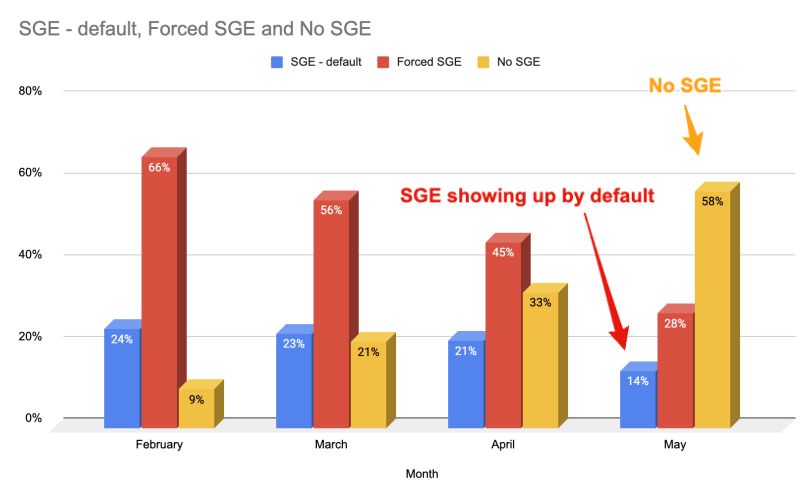
HT: Bart Goralewicz
Second, rest assured that people are going to scroll past it for at least a little while. When featured snippets launched, one of the main reasons people gave for ignoring them was that they didn’t trust the information.
How much more with generative AI? Each panel footnotes, “Generative AI is experimental,” which does not exude confidence. And lots of people still remember when earlier versions of Google’s AI Answer panel recommended drinking urine to pass kidney stones …
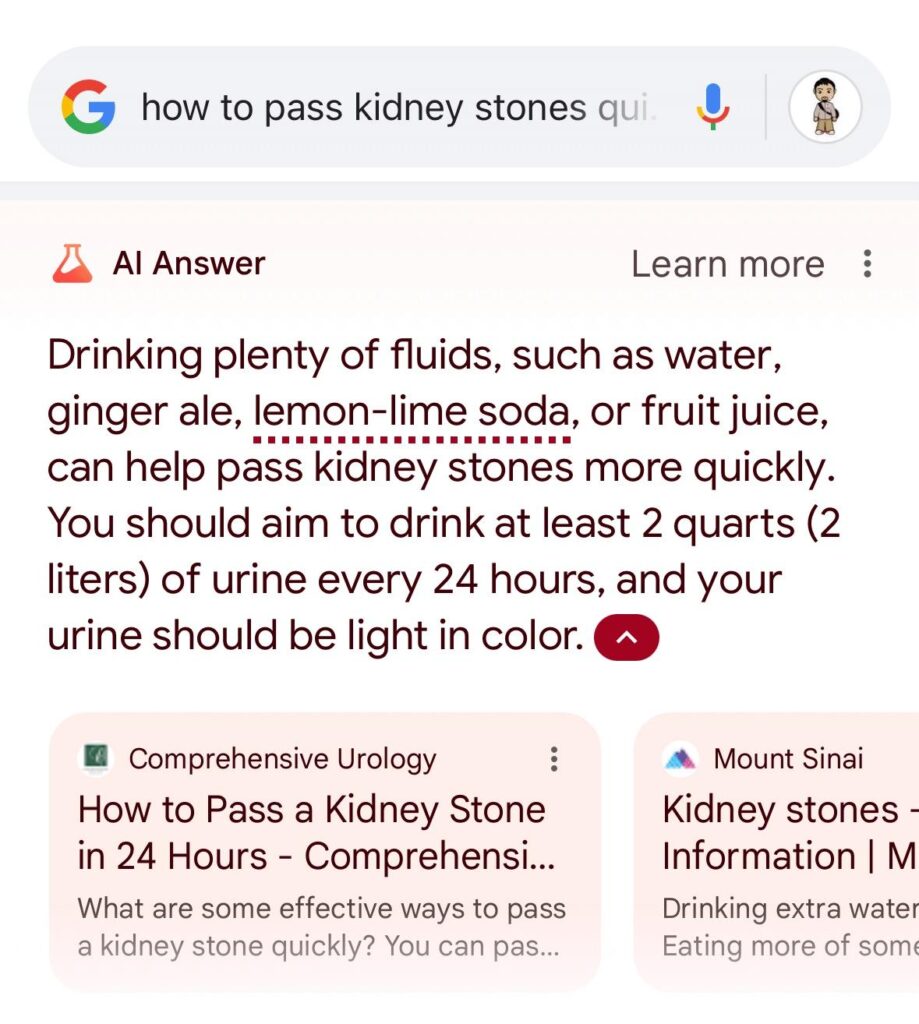
HT: Austin Sarles
Don’t ignore it. But don’t panic.
Get revenue-focused SEO support
Five big steps you don’t have time for? I know some people who can help. (Spoiler: It’s us. We can help.)
If you need some support to figure out where your site is at and what you have to do to take advantage of AI Overviews, shoot me an email or put some time on my calendar!
